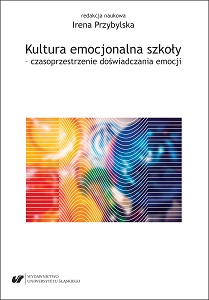Teatr szkolny jako forma praktyk performatywnych. Możliwe wyjście z kryzysu kultury emocjonalnej szkoły
School theatre as a form of performative practices
Author(s): Edyta Nieduziak
Subject(s): Education
Published by: Wydawnictwo Uniwersytetu Śląskiego
Summary/Abstract: A possible way out of the crisis of the emotional culture of the school. The article attempts to describe the school theatre as one of the possible ways out of the crisis of the emotional culture of the school. The author assumes, however, that it requires a special treatment of school theatre, namely as a performative practice. The understanding of the school’s emotional culture as a kind of school culture presented in the introduction, manifested in its emotional climate, which is shaped, among others, by the teacher’s emotional work and upbringing in the emotional sphere (Przybylska 2018) is the starting point for observing the artistic and theatrical practice in schools. Observation of current school activities, in which theatre manifests itself in almost ossified forms, causes that although one can see in it the potential for changes in emotional culture, because the emotions of youth are the main tool of its work, it requires a different treatment – just as a performative practice. In the light of the theory of cultural representations (performance studies), school theatre is considered to be the mainstream applied theatre, which, besides aesthetics, is characterized by being treated as a tool for human or social change.The author presents the so-called crisis exit routes and barriers that hinder the process of change. In the first group, she proposes as methods of solutions, among others, focusing on small theatrical forms, using the element of fun, appreciating workshop activities and the processual character of work on the performance, not just the final effect. Among the barriers she discusses, apart from the aforementioned conservative structure of performances, the low involvement of teachers and the lack of artistic competence that would allow school theatre to be based on its constitutive attribute, which is theatricality, the opposite of literality. The juxtaposition of possible exit routes with the school barriers to the development and dissemination of school theatre as a performative practice makes it possible to see it as an out-of-school practice, yet aimed at children and adolescents of school age. These metaphorical evacuation routes are located, among others–– in the activity of non-governmental organisations focused on conducting theatre workshops for different target groups and using different methodological approaches or focusing on exploring the chosen method of theatre work,–– theatre institutions, to which theatre created by children and young people is transferred.Following these paths can help to restore to the school a culture that has created a safe area for the development of emotional functions, social cooperation and that has contributed to changes in pupils’ personalities by means unknown to the didactics focused on the implementation of programme content and goals.
Book: Kultura emocjonalna szkoły – czasoprzestrzenie doświadczania emocji
- Page Range: 119-136
- Page Count: 18
- Publication Year: 2019
- Language: Polish
- Content File-PDF

